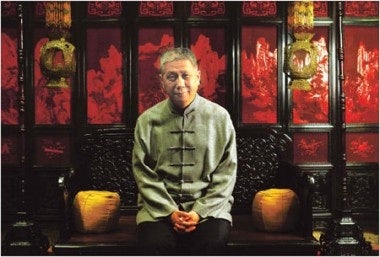Rumors Of Luxury Tax Reduction Have Swirled For Weeks#

As Jing Daily has previously written, amid increasing pressure from business leaders and consumers, Chinese Ministry of Commerce official Yao Jian recently hinted that the government may reduce China's notoriously high luxury tax in an effort to increase domestic spending on high-end goods. (A statement quickly denied by Ministry of Finance officials.) Yao's somewhat vague pronouncement, that luxury tax cuts are an "irresistible trend", quickly triggered a firestorm of articles for and against the cuts, with those in favor echoing Wang Jianlin's belief that high luxury tariffs don’t actually decrease demand for high-end goods, but rather induce consumers to shop for them elsewhere (e.g., Hong Kong or Europe), and those against the cuts contending that stiff luxury taxes will help reduce China's yawning wealth gap.
Still, the Chinese government has given no clear word on whether these luxury tax cuts will actually happen, so we're left with conjecture from those on both sides of the issue.
As the "will-they-or-won't-they" game continues to play out, this week the Chinese art collector, curator and lecturer Ma Weidu (马未都) writes in a blog post that China shouldn't just lower its luxury taxes, it should abolish them completely. While Ma's ideas are interesting, his thoughts on the implementation of a "licensing system" for luxury retailers are less than feasible. Still, Ma wields significant influence in the Chinese media world, so his observations are well worth a read. From Ma's blog post (translation by Jing Daily team):
Chinese luxury consumers have quickly taken a commanding position in the world, but I don't know if China should be happy or worried about this. Go to any high street in the world, and you'll find Chinese people shopping in luxury boutiques there. This spring, I was passing through Dubai International Airport, where all of the world's top luxury brands have stores, and I noticed Chinese shoppers all breathlessly saying the same thing, almost in unison: "It's so cheap!"
Chinese people spend a lot of money overseas, due to China's luxury tax. Because the government and the people have different attitudes towards luxury goods, this leads to stiff punitive taxes being levied against luxury items, so the number of Chinese people shopping domestically remains a drop in the potential bucket; But if you go overseas, you see Chinese people behaving completely differently, acting almost hysterically, toting bags large and small, often wiping out entire stores, leaving foreigners flabbergasted.
As a result of the high prices of luxury goods [in China] and the insecure pursuit of these goods among some Chinese people, we're seeing societal polarization: One one side, you've got people who can afford to buy luxury goods flaunting them openly, and on the other, you have the "have-nots" fostering a deep hatred of the "haves". This inevitably causes a social confrontation.
Recently, the argument between those who support lowering the luxury tax and those who want it raised has hit fever pitch. Here, though, I've got an idea of my own, a cure for this illness: China should implement a luxury licensing system and get rid of the luxury tax completely. Whoever wants to sell their luxury goods in China, then, would have to offer the lowest prices in the world at risk of losing their license. This would have three positive effects:
First, it would attract consumers from around the world to shop in China, driving the Chinese economy.
Second, it would stop Chinese consumers from spending their hard-earned money overseas.
Third, it would reduce the current consumption gap, giving ordinary Chinese the opportunity to buy one or two luxury items, lessening societal hatred of the wealthy.
While this kind of change in the way of thinking would be inherently good for Chinese shoppers and for China, it would be less attractive to the luxury brands themselves, which would see lower profits.
While Ma's dreams of luxury brands selling their products at lower prices in China than in their home markets is a laughable prospect, his third thought -- that lowering (or abolishing, in his theory) the luxury tax would benefit Chinese society by giving middle- or lower-middle-class individuals the ability to purchase one or two little trinkets from luxury brands, thus making them feel a bit less "left out", makes an interesting point.